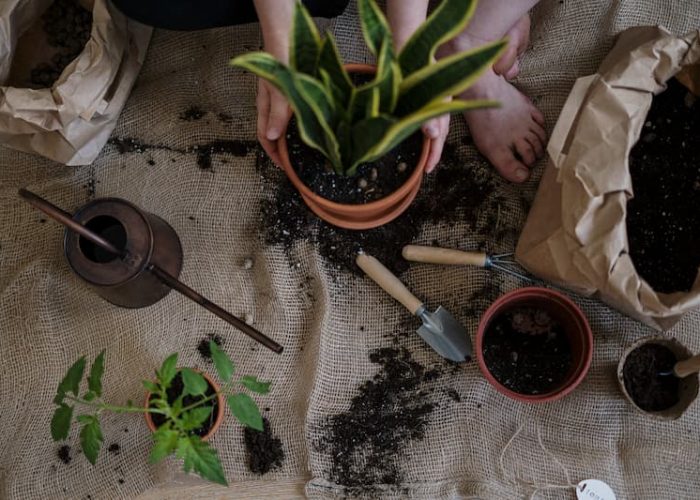Hobbies are popular because they’re more than mindless pursuits. Hobbies typically involve activities that are extracurricular (i.e. not part of your job or other responsibilities) that give you a personal benefit.
For instance, there are a number of benefits that hobbies can offer, from better sleep and physical health to lower stress, improved relationships, and greater overall happiness.
Another unexpected benefit of a hobby is the fact that it can stretch your brain and help you develop new skills.
Finding Skills in Your Hobbies
Any hobby can help develop skills of one sort or another. However, honing an applicable and beneficial skillset through hobbies takes a little strategizing.
It’s important to start by defining what it means to develop a “skill.” These are typically broken down into two or three categories:
- Hard skills: These are applicable skills that are acquired through learning and practice, such as creating a spreadsheet, fixing a car, or kicking a ball.
- Soft skills: These are nuanced abilities and attributes that tend to involve human interaction, such as listening, collaborating, and being empathetic.
- Transferable skills: These are skills, hard or soft, that can travel with you from one job to the next.
Every hobby has a plethora of related skills. The important thing is breaking down each hobby to discover which skills are present and how they can apply to your career.
Incorporating Hobbies Into Your Resume
Hobbies can be an instrumental part of showing an employer that you have a well-rounded set of skills that apply to a particular job. Of course, developing a skill via a hobby is only half the battle.
You also need to communicate that information to a potential employer — especially if you’re trying to get a new job. In order to do this, you have to include the right hobbies (and their related skills) on your resume in a tasteful way that helps you stand out to recruiters. A few ways to do this include choosing hobbies that are:
- Relevant: Consider each position and then include hobbies in direct response to qualifications listed in the job advert.
- Restrained: Don’t list an abundance of hobbies; instead, choose two or three highly applicable options per application.
- Non-polarizing: Stick to skills; don’t highlight highly opinionated hobbies, such as political activities.
When you add hobbies to a resume, briefly include them in their own section at the end.
Hobbies That Build Job Skills
So far we’ve dug into how to identify skills in your hobbies as well as how to showcase them on a resume. Now it’s time to dig into some samples of hobbies that have particularly high inherent value when it comes to developing career skills.
Volunteering
Volunteering is an iconic hobby — and one with many skill-related benefits. Soft skills are particularly important here.
Volunteering can take many different forms, but in most cases, it involves those who are in need. This is a great way to develop empathy for others. It also sharpens emotional intelligence and the way that you perceive and react to others’ feelings.
Volunteering also often puts individuals in positions where they have to improve their decision-making ability. This gives them an added dimension of decisiveness in the workplace.
You can also become a better servant leader by volunteering. Improving your ability to offer service to others can help you lead teams, care for clients and vendors, and even help with things like customer service.
Music and Art
Activities like playing the guitar or painting a picture are poster children for the “hobby” concept — and for a good reason, too.
Both activities involve deep levels of creativity and inner passion. The ability to harness this and express it outwardly can be a difference-maker for many jobs.
In addition, participating in the arts demonstrates that you’re willing to cultivate yourself inwardly. You aren’t purely focused on outward-facing, shallow pursuits. This can directly translate to greater loyalty and trustworthiness.
Sports
Sports come with an endless list of benefits — even when they’re approached as an extracurricular pursuit.
For example, participating in a group sport, in particular, can increase your ability to operate as a team player. It gives you opportunities to get better at communicating and coordinating with others.
In some cases, team captains and coaches also have the chance to get better at managing groups of people. People management is an essential part of many job descriptions.
Video Games
It’s hard to look at something as casual as a video game as a bonafide hobby — let alone a skill-builder. And yet, gaming has become a powerful way to improve your professional capabilities.
In a tech-first world, the ability to play both creative and competitive games can help with a variety of important skills. This starts with obvious items like hand-eye coordination, but it goes much further.
Playing games naturally develops skills like critical thinking, strategic planning, and problem-solving. It also often puts you in situations where you must exercise social skills and collaboration.
At times, games can even push individuals to dip into areas like leadership and conflict resolution.
Blogging and Podcasting
Running a blog or creating a podcast may feel cathartic. It can also serve as a way to offload your thoughts and build your personal brand. But curating a blog can also be a great way to improve your work performance and help you land a good job.
For instance, both blogging and podcasting demonstrate self-discipline. They show an ability to create content and post it consistently based on your own initiative.
The activities are also a thorough demonstration of your ability to express yourself in both written and audible formats. This shows the ability to communicate through different mediums.
Managing a podcast or blog also requires a certain degree of business savvy. This can develop entrepreneurial inclinations and help you gain confidence with business decisions that involve risk.
Gaming
Video gaming is a great way to develop skills, but traditional gaming also comes with its fair share of skill-happy improvements.
For instance, strategic games like chess, Settlers of Catan, and any number of other board gaming options can develop critical analysis. They teach important differences in areas like strategy and tactics — with the former being about methods and long-term goals and the latter focusing on the specific actions and activities used to fulfill strategies. Naturally, these skills can translate into important business savvy.
In addition, while not officially a “game,” putting together puzzles is also a great way to develop skills. It shows that you can remain organized when working toward a goal. It also helps you learn to picture a goal and attain it. If you take things to the next level with competitive puzzling, it can also help you stay organized and goal-oriented under pressure.
Gardening
Gardening is one of the oldest hobbies in existence. It is slow-paced, requires patience, and is a deeply physical, rewarding activity. It also involves several nuanced attributes that can help you become better at your job.
For instance, a garden forces you to learn to slow down and smell the roses — literally. You must learn to move at the pace of your environment, even if you’re focused on the results. Learning to pace yourself in this way can lead to great success when you find yourself in a work environment that’s out of your control.
On top of that, gardening is a detailed activity. From irrigation techniques to weeding to plant placement, it’s important to consider how you lay out and manage your garden. This can be a great way to see how details in the here and now impact the end goal.
Cooking
Cooking is another age-old hobby that attracts many people. From learning the basics to digging into cultural styles, there’s a lot to learn in the kitchen.
The skills you learn while cooking can also build job skills in a variety of ways. This starts with time management. If you can’t follow the right timing, it can ruin many a dish. This can directly translate to a field like accounting, where managing time can make a huge difference with things like paying taxes or fulfilling invoices on time.
In addition, following detailed instructions can be the deciding factor between culinary success and failure. And learning to add your personal flair without breaking the “laws of the kitchen” only takes that skill to the next level.
Reading
Last but certainly not least, we have reading. This is one of the most common hobbies in the history of mankind, and it’s not hard to see how it can impact your job performance.
Reading cultivates your ability to conduct research. It teaches you to pursue and process knowledge.
It also feeds an insatiable desire to always be learning. This resonates strongly with the growth mindset prevalent in so many modern offices.
Perfecting Your Professional Pursuits Through Hobbies
There are many reasons to use hobbies to hone your professional skill set.
You might be just starting out and looking for ways to beef up your resume with some applicable experience. You might find yourself shifting to another position within your field. You may even be trying to change industries entirely.
Regardless of the reason, don’t miss out on the opportunities that your hobbies present to help you build your job skills. Identify the skills inherently present in each of your hobbies and then look for ways that they can help you, both in your current job and in any future positions you might hold.
About the author
Amanda Winstead is a writer from the Portland area with a background in communications and a passion for telling stories. Along with writing she enjoys traveling, reading, working out, and going to concerts. If you want to follow her writing journey, or even just say hi you can find her on Twitter.






